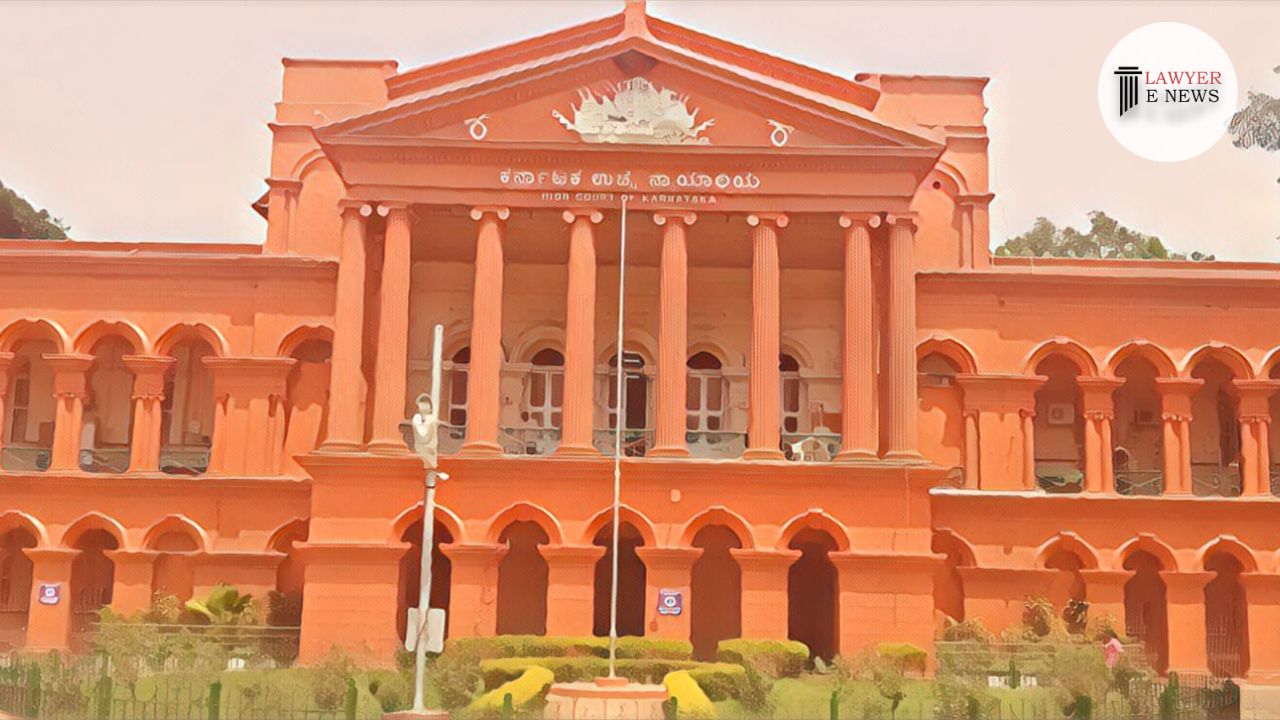-
by Admin
15 February 2026 5:35 AM



In a landmark decision, the Karnataka High Court has ordered the mandatory registration of a sale certificate issued by a bank under the SARFAESI Act, despite pending Income Tax dues against the original property owners. Justice M. Nagaprasanna delivered the judgment, underscoring the precedence of the SARFAESI Act over other statutory dues and directing the State Government to ensure compliance through circulars to Sub-Registrars.
Background: The petitioner, Sri T. Bharathgowda, acquired a property through a public auction conducted by Canara Bank under the SARFAESI Act after the original owners defaulted on their loan. Despite fulfilling all requirements for registration, the Sub-Registrar refused to register the sale certificate, citing pending Income Tax dues against the original owners. The petitioner sought a writ of mandamus to compel the Sub-Registrar to complete the registration.
Court Observations and Views:
Credibility of SARFAESI Act Provisions: The court highlighted the paramount importance of the SARFAESI Act in cases involving the recovery of financial assets by secured creditors. Justice Nagaprasanna noted, “Section 26E of the SARFAESI Act mandates priority to secured creditors over all other debts and all revenues, taxes, cesses, and other rates payable to the Central Government or State Government or local authority.”
Priority Over Government Dues: Reaffirming the SARFAESI Act’s priority provisions, the court referenced several Supreme Court rulings, including Punjab National Bank v. Union of India and Dena Bank v. Bhikhabhai Prabhudas Parekh & Co. These cases established that secured creditors’ rights take precedence over government claims, including taxes. “The dues owed to the Crown or the State cannot take away the right of a secured creditor in the light of Section 26E and Section 35 of the SARFAESI Act,” the judgment read.
The court delved into the statutory framework governing the registration of documents under the Registration Act, 1908, and the Karnataka Registration Rules, 1965. Justice Nagaprasanna pointed out that the reasons for refusal to register a document are clearly enumerated in Rule 171 of the Karnataka Registration Rules, none of which applied to the case at hand. “The Sub-Registrar can act only within the four corners of the Registration Act and the Registration Rules framed by the State,” he observed, underscoring that the Sub-Registrar’s refusal was beyond the statutory grounds provided.
Justice Nagaprasanna stated, “The Sub-Registrar has no jurisdiction to refuse registration of a document when all the necessary requirements for registration have been met. The denial of registration citing pending Income Tax dues is not supported by any statutory provision.”
Decision: The Karnataka High Court’s directive reinforces the supremacy of the SARFAESI Act over other statutory claims, ensuring that the rights of secured creditors are upheld. By mandating the registration of the sale certificate and directing the State Government to issue compliance circulars, the judgment aims to prevent future undue refusals and streamline the registration process. This landmark decision is expected to have a profound impact on property registration practices, particularly in cases involving financial recoveries under the SARFAESI Act.
Date of Decision: 28th May 2024
Sri T. Bharathgowda vs. State of Karnataka & Others
